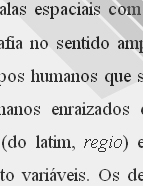

................................
Silbert closely follows Marc Bloch’s theoretical and methodological lessons for the study of rural regions and is concerned with comparing Portuguese agrarian landscapes and farming systems with others already studied in Europe, Africa and America. In his research, the French historian was supported by local scholars, notably José Ribeiro Cardoso, who had edited the work Subsídios para a história regional da Beira Baixa [Contributions to the regional history of Beira Baixa], sponsored by the Beira Baixa Provincial Council and included in the vast collection of publications of the Duplo Centenário [Double Centenary]. Also from the late 1960s, Joaquim Romero Magalhães’s degree thesis, Para o estudo do Algarve económico durante o século XVI [Towards a study of the Algarve economy during the 16 th century], was published in 1970. Under the guidance of V. M. Godinho and influenced by French historiography, the work was part of a renewal that would later bear fruit. At the end of the 1970s and in the following decades of the 20 th century, agrarian and rural history experienced an important surge and scientific and methodological update. But it was not only this field that expanded in an extraordinary way after 1974, as a result of the political change to democracy and, above all, the development of higher education and the awarding of master’s and doctoral degrees. The political evolution of local authorities and autonomous regimes in the Atlantic islands was also not unrelated to this phenomenon, as they made resources available that favoured research and publication on regional and local history.
In short, national historiography has made slow progress towards renewal and the introduction of new methodologies and issues, especially outside the university environment, which remained averse to change. However, regional and local history remained very attached to traditional formulas and, given that it was mainly produced by amateurs and local scholars, it was only with the expansion of higher education and, above all, with postgraduate academic work that it benefited from significant expansion and updating. It should be noted that, already in the 1960s, local history had been valued in the final dissertations presented at the Faculties of Arts, which would encourage graduates, many of whom were secondary school teachers and technical experts in regional and local organisations, to continue their studies. The great revival of regional and local history would therefore take place in the last decades of the 20 th century, in a more favourable political context and within the framework of the expansion of higher education, which made it possible to carry out academic research and work with greater rigour and more modern methodological and conceptual tools.
This work is financed by national funds through FCT - Foundation for Science and Technology, I.P, in the scope of the projects UIDB/04311/2020 and UIDP/04311/2020.
